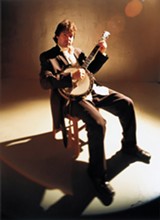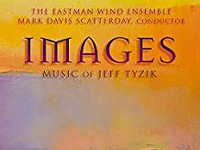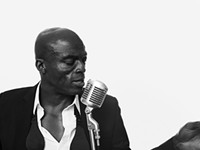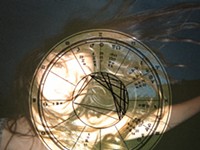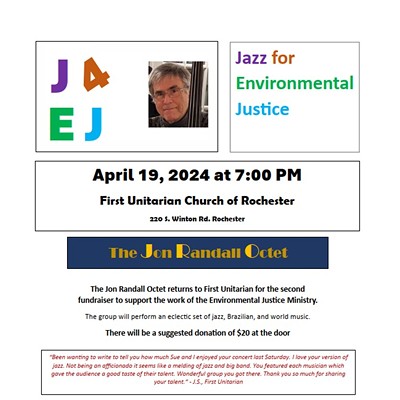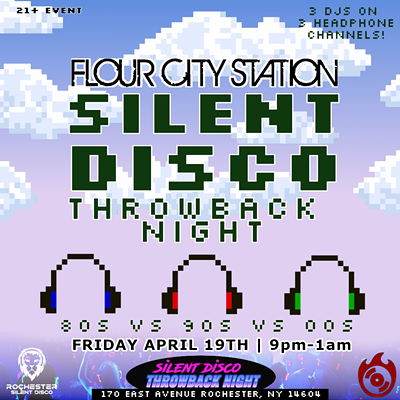[
{
"name": "500x250 Ad",
"insertPoint": "5",
"component": "15667920",
"parentWrapperClass": "",
"requiredCountToDisplay": "1"
}
]
Béla Fleck is having an incredible start to 2016. The banjoist and composer, along with his wife and fellow banjoist, Abigail Washburn, is fresh from a Grammy win for "Best Folk Album," and his second banjo concerto, subtitled "Juno," is slated for its premiere on March 19 with the Canton Symphony Orchestra. It would be rather easy for a musician of Fleck's stature and accomplishments to sit back, relax, and enjoy his recent successes. But the man behind the progressive, genre-bending powerhouse Béla Fleck and the Flecktones is taking a decidedly different approach, with a full complement of performances this spring with Washburn and jazz piano great Chick Corea.
And of course there is Fleck's collaboration with the Eastman Wind Ensemble on Friday, with whom he will perform his first banjo concerto entitled "The Impostor." In a recent email interview with City, Fleck discussed how the banjo has shed its "outsider" status in classical music, what makes the wind ensemble version of "The Impostor" distinctive, and the new compositions on the horizon. An edited version of that interview follows.
City: Does playing with a group like the Eastman Wind Ensemble enable you to show off the banjo's capabilities in a way you might not be able to in other contexts?
Béla Fleck: Yes, it does. And it also allows me to hear "The Impostor" Concerto in a new way. It was written for full symphony orchestra. This arrangement is for wind ensemble, and the piece is quite different in this setting. It's actually more rhythmic and exciting.
Does the wind orchestra arrangement of "The Impostor" highlight certain characteristics of the composition that might be more obscured in the string orchestra version?
I feel that the piece rocks in a whole different way and also has a very unified sound, due to more similar instruments playing together. It's a very enjoyable alternate to the original version.
How does the energy of collaborating with an orchestra compare with that of playing with The Flecktones or a band outside of the classical realm?
It's the variety of colors that I particularly enjoy. And writing for orchestra allows me to explore things that I can't play on the banjo -- long, slow-moving, expansive sounds and dissonances are very enjoyable to create and hear back. And playing with a bunch of people -- sometimes 90 at once -- is pretty incredible. You give up the quick responsiveness of a small improvising ensemble for the complexity and power of a group led by a conductor.
In the title of your banjo concerto, and in the names of the individual movements ("Infiltration," "Integration," "Truth Revealed"), there is a playful awareness of the banjo's seeming "outlier" status in classical music. Has your opinion on the instrument's place evolved since writing the concerto in 2012?
I have now played the piece about 40 times, and I continue to get opportunities to play with orchestras with my second banjo concerto, which premieres next month, and future commissions which are coming together. So the truth is that although the banjo and I began as a strangers to the orchestral world, now it's a quite common part of my life. And since I do get invited to return regularly, that would have to imply some sort of acceptance of the banjo in that world. It's pretty amazing.
What were your highest priorities in writing "The Impostor"?
I wanted people to take the banjo seriously as a musical instrument on par with any other in the orchestra, and also I wanted to avoid going in an Appalachian or Americana direction. I wanted to write something influenced by my favorite composers: Bach, Brahms, Beethoven, Bartók, Mozart, etc. My one strong American influence would have to be Gershwin -- I now realize, though I wasn't aware of it at the time.
If you could go back and write your first banjo concerto over again, what might you do differently?
I might make some things easier to play for myself and the orchestra. And I would attempt to develop materials more, something I believe I am doing better now in my piece for banjo and chamber orchestra and my second banjo concerto.
Do you have plans to write additional music for an orchestral or chamber music setting?
Yes I do. Beyond concerto number two, which is now complete, I have been invited to do a third concerto, and I'm very interested in doing this one for some historical reasons. Three may be enough banjo concertos, and perhaps I could move on to some different classical combinations. It would be fun to write more music for banjo and string quartet. I have a couple of pieces for that combination, and it works very well. And there are so many possibilities.
Speaking of...
Latest in Music Features
More by Daniel J. Kushner
-
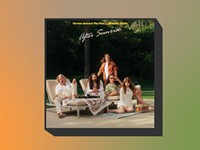
Album Review | 'After Sunrise'
Apr 9, 2024 -
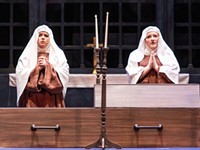
Opera Review | 'Dialogues des Carmélites'
Apr 5, 2024 -
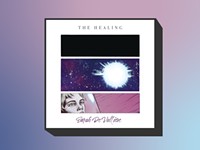
Music Review | 'The Healing'
Apr 4, 2024 - More »
